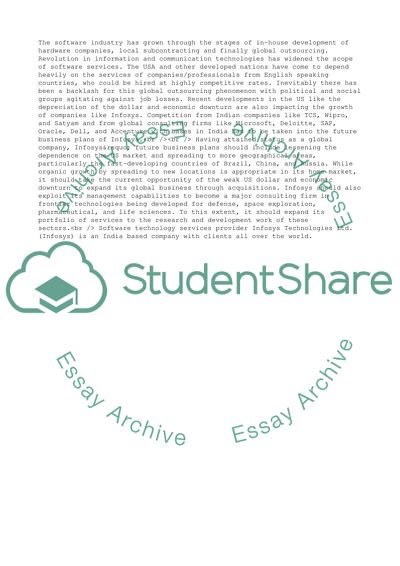Cite this document
(Global Business Plan for Infosys Technologies Ltd Case Study, n.d.)
Global Business Plan for Infosys Technologies Ltd Case Study. Retrieved from https://studentshare.org/business/1713115-global-business-plan-report
Global Business Plan for Infosys Technologies Ltd Case Study. Retrieved from https://studentshare.org/business/1713115-global-business-plan-report
(Global Business Plan for Infosys Technologies Ltd Case Study)
Global Business Plan for Infosys Technologies Ltd Case Study. https://studentshare.org/business/1713115-global-business-plan-report.
Global Business Plan for Infosys Technologies Ltd Case Study. https://studentshare.org/business/1713115-global-business-plan-report.
“Global Business Plan for Infosys Technologies Ltd Case Study”, n.d. https://studentshare.org/business/1713115-global-business-plan-report.


